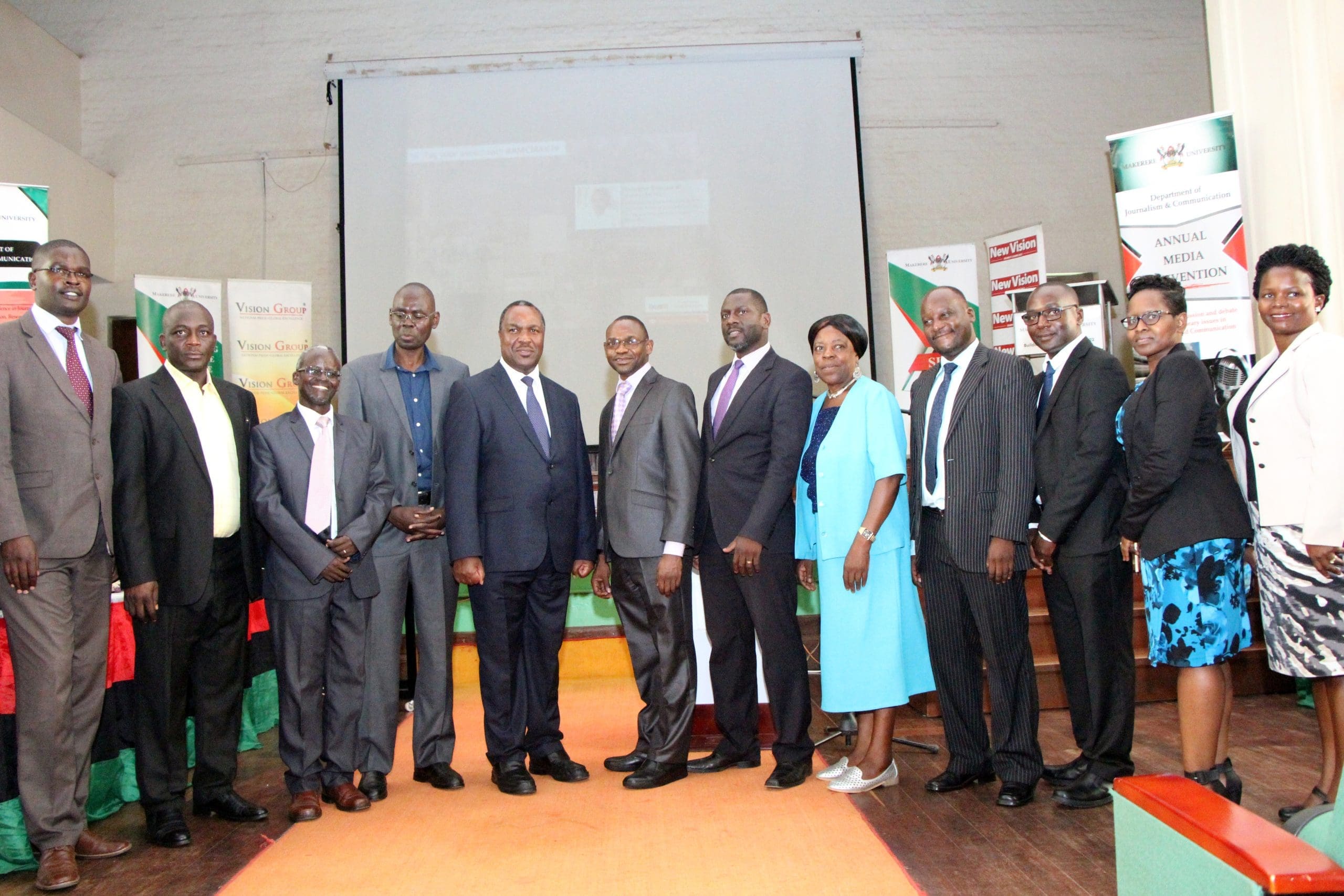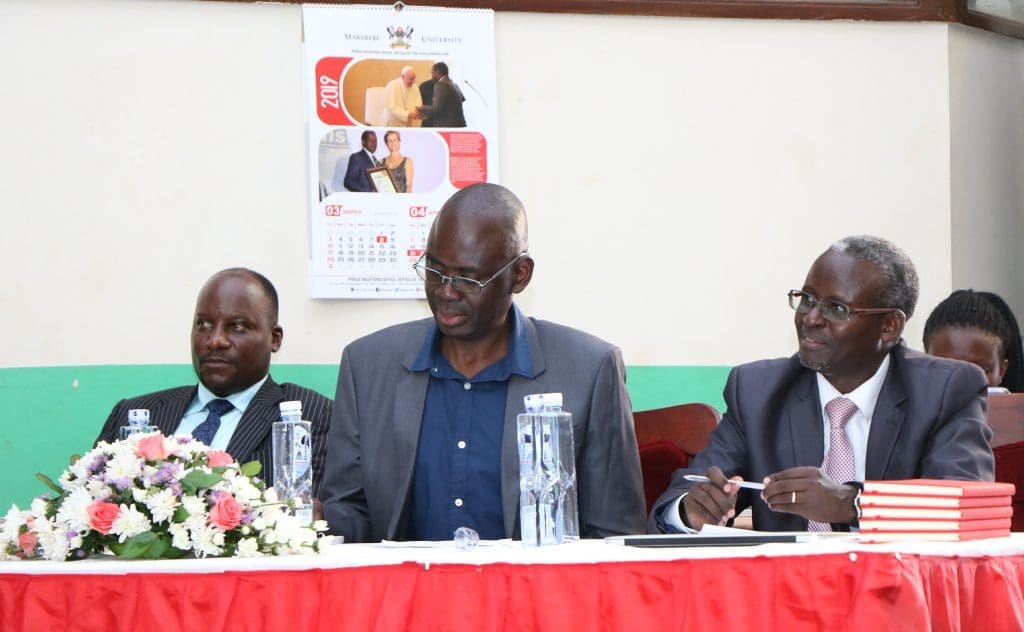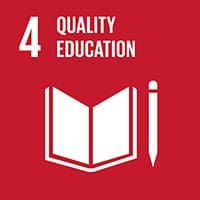
Image: Dr Charles Wendo, SciDev.Net Training Cordinator at the Makerere University Annual Media Convention.
19/05/23
Story of impact
Supporting science communication at Makerere University
In brief: A lack of science commination skills training in Sub-Saharan Africa has negatively impacted the quality of the region’s science journalism. This has implications for the public’s understanding of complex, important issues that affect them. Addressing the science communication skills deficit in universities will help millions of people, including policymakers, access reliable scientific knowledge and use it to shape important legislation.
Why it matters: In these times of global challenges such as climate change, COVID-19 and food insecurity, science journalism has an important role to play in educating the public about complex issues. Enhancing science communication skills can help journalists in Sub-Saharan Africa play a central role in informing the public about these issues.
The big picture: Scholars across Africa produce high-quality research, but a lack of effective science communication skills means the public and policymakers, who could benefit from it, miss out. If African universities can improve science communicators’ skills, millions of people could gain better access to knowledge.
By the numbers: Between April 2018 and December 2019, 280 students completed their Script courses fully at Makerere University in Uganda. If each student went on to write only half -a -dozen stories for media outlets with thousands of readers, millions of people could benefit from accurate, informative science reporting.
Background
In Sub-Saharan Africa, newspapers often call up on generalist journalists to cover complex science stories. Operating on tight budgets, few have the capacity to appoint a dedicated science reporter.
This means the quality of science news available to the public on critical issues can be low. Policymakers’ access to accurate, evidence-based science journalism, which can support more effective legislation, is also limited.
In 2011, a paper published by Makerere University in Uganda noted that “whereas news organisations in many advanced economies are scaling back significantly on the resources they devote to covering science and technology, interest in this field is growing in Africa.”
However, the paper also identified a scientific knowledge gap and lack of scientific literacy among journalists as an impediment to quality coverage of science and technology in the African media.
A 2013 SciDev.Net report identified the need to provide science communication training to address a skills shortage among journalists in Africa and the Middle East.
A 2020 SciDev.Net scoping study for an East African Science Media Centre also cited skills shortage as a key barrier to delivering good science journalism in the region.
SciDev.Net considered ways to foster more reliable, research-based scientific information.
What action did SciDev.Net take?
On 27 March 2018, SciDev.Net launched a training programme for journalists and scientists called Script.
The overall aim of Script was to strengthen science communication and science journalism in English-speaking countries in Sub-Saharan Africa, providing the public and specific audiences such as policymakers with a better understanding of complex scientific issues.
More specifically, SciDev.Net aimed for Script to play an important role in presenting policymakers with high-quality science journalism, helping them achieve more evidence-based poverty alleviation interventions.
SciDev.Net also sought to improve governance by giving journalists, scientists and the public a greater capacity to hold policymakers to account for interventions based on scientific information.
Initially, SciDev.Net offered two Script courses delivered online and at universities: Media skills for scientists and Science communication skills for journalists.
At Makerere University in Uganda, SciDev.Net’s Charles Wendo – science journalist, veterinary doctor and media trainer – gave training in science communication and journalism. Undergraduate and postgraduate science students studied Script as part of their curriculum, taking end-of-course examinations.
Between October 2018 and August 2019, 280 students completed the Script courses at Makerere University. Students who completed the course survey gave Script over 98 per cent positive feedback. In addition, 94 per cent of university staff who attended Script Training of Trainers workshops reported more confidence in communicating science.
Of the students who took Script, 93 per cent of those who completed the course general feedback survey thought it was important for future journalists and communicators to be able to communicate science.
It is anticipated that the 280 journalists and communicators trained at Makerere University will help increase the number of science stories published in Uganda in the coming years.
What was the impact of SciDev.Net’s action?
The ability of communication professionals, journalists and scientists to learn from each other was strengthened through further training and networking events .
On 25 April 2019, Uganda’s first Annual Media Convention dedicated to science journalism was held for journalists, researchers, students and communications specialists. 360 people, including Uganda’s Minister for Science, Technology and Innovation, Dr Elioda Tumwesigye, joined the networking event. Participants discussed the increasingly important role that science news and analysis plays in forging links between scientists, policy makers, communities and people working in development. On the day, the event was the top trending topic on Twitter in Uganda. Following the event, the Uganda Christian University planned to introduce science communication courses into their curriculum. More information about the event can be found here.
Makerere University offered Training of Trainers sessions to the academic staff (lecturers), giving them the skills to deliver Script training to all. This also resulted in staff building links with other institutions and sharing the knowledge they gained.

Since introducing Script at Makerere University, four more African universities have independently approved and adopted the Script science journalism curriculum without major amendment. In each case, the journalism and communication departments scrutinised the curriculum, which they then forwarded to the Senate for further examination .
Following the delivery of Script, staff from the department of journalism and communication at Makerere University went on to win a grant to popularise the outcomes of research and innovation.
William Tayeebwa, head of the department of journalism and communication at Makerere University, said:
“Interest in science is growing in Africa.
“We’re delighted that Makerere University is playing a central role in nurturing that interest, helping the public and policymakers to access accurate science reporting.
“Script has helped us to advocate science communication in more African universities, with the course igniting greater support for quality science journalism across the region.
“The benefits of Script, therefore, go beyond the education of our students alone. They extend to scientific knowledge sharing with potentially millions across Africa.”
Relevant SDG:

